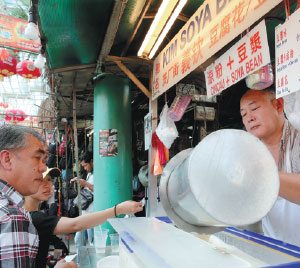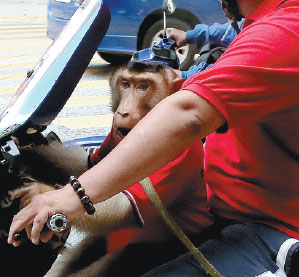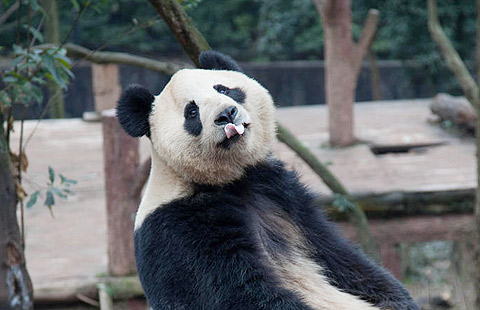Challenge of diaspora dream
Updated: 2014-02-27 07:31
By Pu Zhendong in Kuala Lumpur (China Daily)
|
|||||||||||
Taiwan writer and public intellectual Lung Ying-tai once proposed the concept of a "southern vision" in an attempt to bridge the divides in the politically fragmented Chinese-speaking world.
She asked people in Beijing and Taipei to view the world through the perspectives of Malaysia, Singapore and Australia, countries that are geographically south of China but have a strong link to the mainland.
"Though the Chinese-speaking world has been dissected into isolated pieces by walls of politics, our shared culture can serve as a unifier," Lung wrote.
"If 'the south' was not gazed upon by the political center in 'the north', if Chinese culture was officially interpreted from the southern perspective, there would be another version of history."
Had I not wandered through the streets of Kuala Lumpur and immersed myself in the daily life of the Malaysian capital, I would not have known how vital Chinese traditions are in this diverse and competitive society.
A 2010 survey found there were 6.4 million people of Chinese heritage in Malaysia, accounting for 24 percent of the population. Malays make up the majority, at around 67 percent.
Yet there are challenges. "It is not a favorable environment for Chinese culture to thrive in because the country is troubled by ethnic politics," says a taxi driver surnamed Lim. "Every ethnic group is fighting to be visible, to have its voice heard and rights safeguarded."
Lim, 24, is a third-generation Chinese-Malaysian. Like almost every Chinese child in the country, he was sent to a private Chinese school at an early age, but in July he left full-time education and started providing a taxi service for a local hotel.
"My grandfather was originally from Fujian province, but I have never had a chance to visit my ancestral home," he says in broken Mandarin. "In public schools here, Malay is the mandatory language and time for Chinese studies is often eaten away, so parents will do whatever it takes to send children to private schools."
Standing in heavy traffic in Kuala Lumpur, one gets a glimpse of big colorful signs saying "1Malaysia", with the country's national flag in the background.
The ongoing "1Malaysia" program, designed by Malaysian Prime Minister Najib Tun Razak in 2010, calls for ethnic harmony, national unity and efficient governance. The government have spent more than $12 million on promoting the concept.
"In fact, the Malay people are quite friendly and easy to get along with. It is politics that tends to separate people based on ethnicity and stir tensions," says Too Hon Kwong, owner of a Chinese restaurant in Kuala Lumpur.
Too's restaurant is famous for its seafood, and has become a Chinatown favorite. It is also a popular gathering place for local Chinese. Too said he recently expanded his business to Indonesia.
The restaurant reminded me of the novel Joy Luck Club by Amy Tan, which tells the story of four mothers from four Chinese immigrant families in San Francisco forming a club to play mahjong and cook food while exchanging news.
"Your mother is in your bones," Tan wrote. Mother, in this case, also means homeland, language and culture.
Ng Tien Foo and other members of local Chinese groups are among the frequent diners. Over a pot of Pu'er tea, the old friends discuss politics, play a game of Go and share each family's joys and sorrows. And more often than not, they talk about China.
"China has made tremendous progress over the past 30 years," Ng says. "Members of our generation went to China 20 years ago to seek our roots, but now we go there mostly for business opportunities."
Ng is in his late 50s. His wife and daughter now live and work in Zhongshan, Guangdong province. As a regular visitor to China, he says he hopes the two governments can simplify visa procedures to encourage more exchanges between young people.
"Although we have been teaching our children about China and the Chinese language, it is difficult for them to foster intimacy with their ancestral land until they go and see it for themselves," Ng says.
puzhendong@chinadaily.com.cn
|
Customers buy breakfast at a market run mainly by Chinese-Malaysians in Kuala Lumpur. Photos by Jiang Dong / China Daily |
|
A local motorcyclist drives with his pet monkey. |
(China Daily 02/27/2014 page19)
Today's Top News
Ukraine disbands riot police unit
Putin puts troops in W.Russia on alert in drill
Construction of China-Russia railway bridge starts
Turks stage protests demand PM's resignation
Forecast:China to lower growth rate
Italian new govt wins vote of confidence
Ukraine enters uncharted water
Li urges stronger S. China Sea ties
Hot Topics
Lunar probe , China growth forecasts, Emission rules get tougher, China seen through 'colored lens', International board,
Editor's Picks

|

|

|

|

|

|







